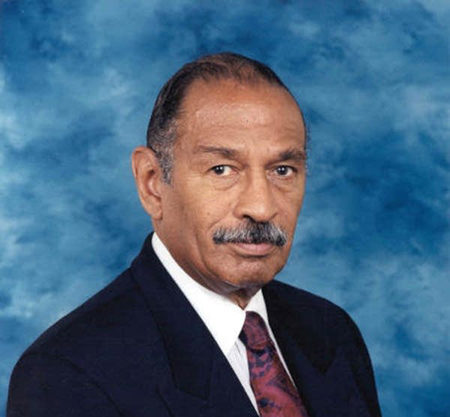
In Memory of Congressman John Conyers: A Persistent Warrior
By Dr. Elsie L. Scott, Director, Ronald W. Walters Leadership & Public Policy Center, Howard University
Rep. John Conyers, one of the founders of the Congressional Black Caucus, passed on Sunday, October 27, 2019 at the age of 90. He filled many of those years with service to his constituents and advocacy around civil and human rights issues, criminal justice reform and other issues important to the African American community. Mr. Conyers did not search for issues that would get him on the evening news or garner an article in the daily media. He attacked issues and problems because somebody needed to do it. He was a not a sprinter, but rather a long-distance runner who kept running despite the lack of mass support and defeats in Congress. He used his Congressional seat to fight for criminal justice reform and to address injustices. Some of the issues and cases he was involved in were the Attica, New York Prison Riots, the Wilmington Ten case, voting rights, racial profiling by police, reparations for the enslavement of African Americans and many more.
I got to know Rep. Conyers through my work at the Commission for Racial Justice of the United Church of Christ. I joined the Criminal Justice Braintrust that he chaired for the Congressional Black Caucus. He used the Braintrust to tap the resources and brain power of Black academics and activists in developing legislation and in highlighting issues disproportionately affecting the black community.
I was often invited to serve as a panelist on his annual Criminal Justice Braintrust issue forums and meetings during the CBCF Annual Legislative Conference (ALC). He was the type person who felt that everybody had a place at the table. Even though he would invite some of us to prepare presentations on current criminal justice issues, we often did not get the opportunity to make our presentations because people walked in the room who he felt needed to be heard also. This frustrated me as well as his staff members such as Bill Kirk, Cedric Hendricks and Keenan Keller, but it did not stop him from hearing from everyone who had something to say.
He served on the House Judiciary Committee where through the seniority system, he rose to the chairmanship. He took Congressional hearings out of Washington, DC to cities where he could hear from people who could not come to Washington to present their concerns. For example, he enraged New York Mayor Ed Koch when he scheduled hearings in New York City in 1983 to hear allegations of police brutality against black and Hispanic New Yorkers. In 2015, he was still using the Judiciary Committee to address police misconduct when he scheduled hearings after the death of Freddie Gray in Baltimore police custody.
One of my most memorable times with Rep. Conyers came in January 2008. I was President and CEO of the Congressional Black Caucus Foundation, and we were working with the Woodrow Wilson Center to plan a Martin Luther King Day program. Mr. Conyers was invited to speak about the making of the Holiday from the work he did on and off the Hill, and Denise Rolark Barnes from the Washington Informer, Moses Boyd, a former Senate staffer and I joined him on the panel. (Rep. Conyers introduced the MLK Holiday bill every legislative session beginning in 1968, and he continued until it passed and was signed in 1983.) I was a little concerned that Mr. Conyers would be late or may not appear at all since he had to fly back from Detroit on a holiday weekend. Not only did he make in time for the live broadcast, but he was early. I am so happy that we got him on video and people throughout the world can here the story in his words.
His love of jazz and his concern about its preservation inspired him to inaugurate a jazz issue forum during ALC. At first it was a discussion like the other issue forums, but he started inviting some of the local jazz artists to “blow” a little. This expanded to a mini jazz set, and by the time I became CEO, he was bringing in top jazz artists. Our finance department flagged it as an activity where we were losing money, and I was given the task of trying to get Mr. Conyers to help us address the problem. His planning committee was scrambling to find sponsors because they knew that he wanted the forum and concert to be open to the public. We scheduled a meeting to discuss how we could stop losing money on the event. When we walked into his office the mood was set with jazz CDs playing in the background. When we sat down, he produced a bottle of champagne with champagne glasses. Needless to say, we left with no agreement, but we had enjoyed the jazz afternoon.
Rep. Conyers was a true fighter for the people who often had an unorthodox way of doing things, but he was persistent. He was a big actor in African American history for the past 50+ years and we all have benefited from his service. I am glad I had an opportunity to work with him and reap the benefits of his work. I offer my condolences to his family and his former staff members.
